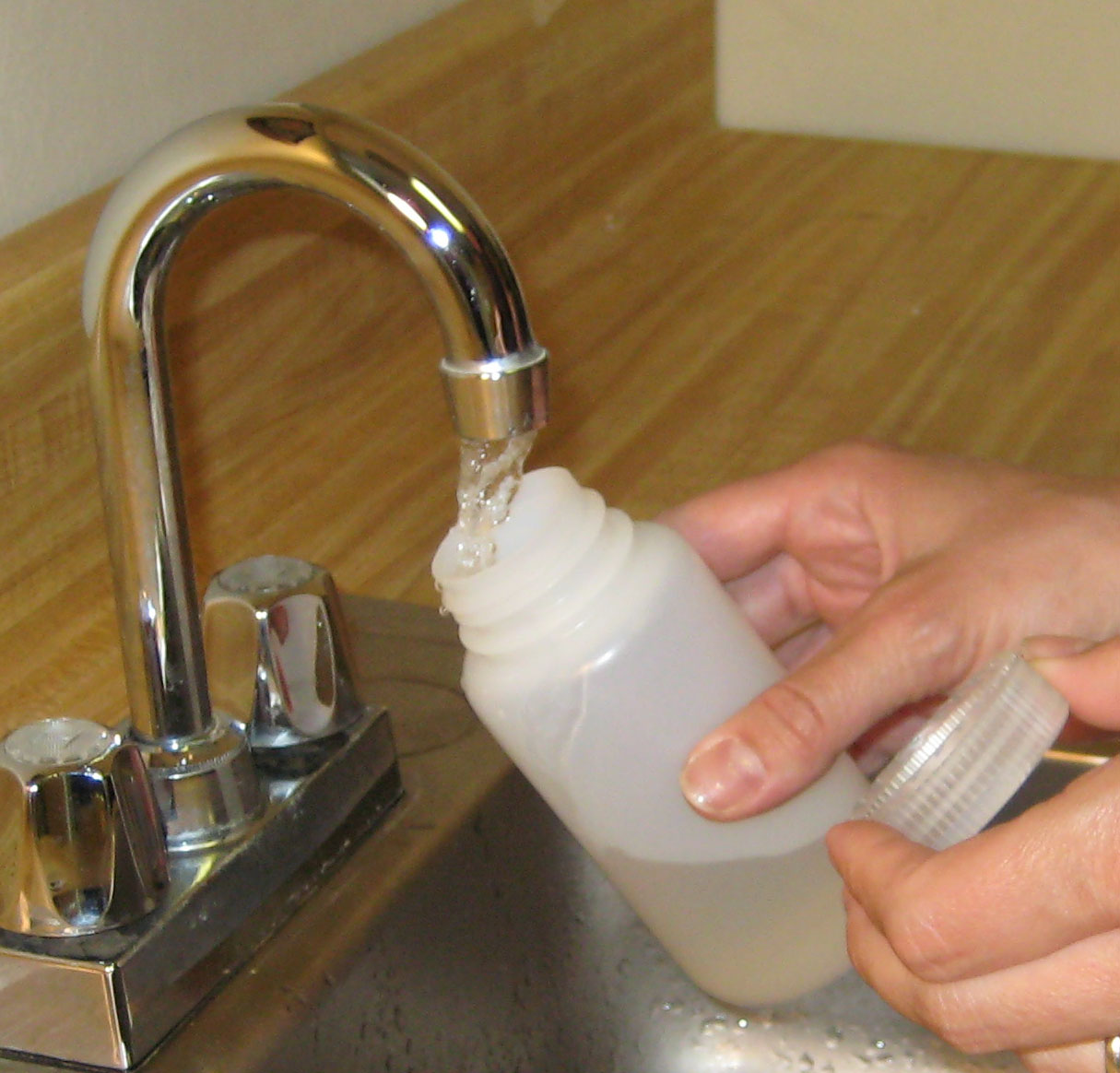Virginia Cooperative Extension launches well-owner education program

Virginians who get their drinking water from privately owned systems such as wells, springs, or cisterns can get help evaluating their water's quality and learn more about maintaining their water systems from Virginia Cooperative Extension.
“More than one million Virginia households rely on private water sources,” says Erin James, coordinator of the Virginia Household Water Quality Program. “Private wells are not covered by the U.S. Environmental Protection Agency’s regulations that protect public drinking-water systems, so the safety of private water sources lies with the owner. We are here to help people understand how to maintain and care for their water systems so that they have a safe supply of drinking water.”
Although the United States has one of the safest drinking-water supplies in the world, it can still become contaminated. Possible contamination sources include seepage through landfills, failed septic tanks, underground fuel tanks, fertilizers and pesticides, and runoff from urban areas – as well as naturally occurring chemicals and minerals, such as arsenic and radon.
According to the Centers for Disease Control and Prevention, the presence of contaminants in water can lead to health issues that include gastrointestinal illness, reproductive problems, and neurological disorders. Infants, young children, pregnant women, the elderly, and people whose immune systems are compromised because of AIDS, chemotherapy, or transplant medications may be especially susceptible to illness from some contaminants.
The Virginia Household Water Quality Program – partially funded through a U.S. Department of Agriculture grant and coordinated by the Department of Biological Systems Engineering at Virginia Tech – is developing the Virginia Master Well Owner Network: a group of Extension agents and volunteers trained to educate well-owners on how to take care of their water supplies.
“Extension agents and volunteers are trained in the proper design, management, and maintenance of private water-supply systems,” says Brian Benham, Extension specialist and associate professor, biological systems engineering. “Agriculture and natural resources agents and family and consumer sciences agents are working with us to organize and conduct county-based drinking-water clinics and serve as a resource for local residents with household water concerns. Along with them, trained volunteers reach out to well-owners in a variety of ways, including speaking to local community groups and in informal conversations with family, friends, and neighbors.”
Participants in the clinics submit water samples that are analyzed at the Department of Biological Systems Engineering Water Quality Laboratory at Virginia Tech. The lab screens the samples for coliform bacteria, including E. coli; nitrate; pH level; hardness; and the presence of nuisance contaminants such as iron and manganese.
Extension agents and specialists then schedule local meetings where they return the confidential analysis results to well-owners, explain how to interpret the reports, and review the options for addressing any problems identified.
Sixteen drinking-water clinics are scheduled across Virginia in 2009. Citizens interested in participating in a clinic or becoming a Master Well Owner Volunteer can visit the program’s website or contact their local Virginia Cooperative Extension office for additional information and a list of upcoming events.




